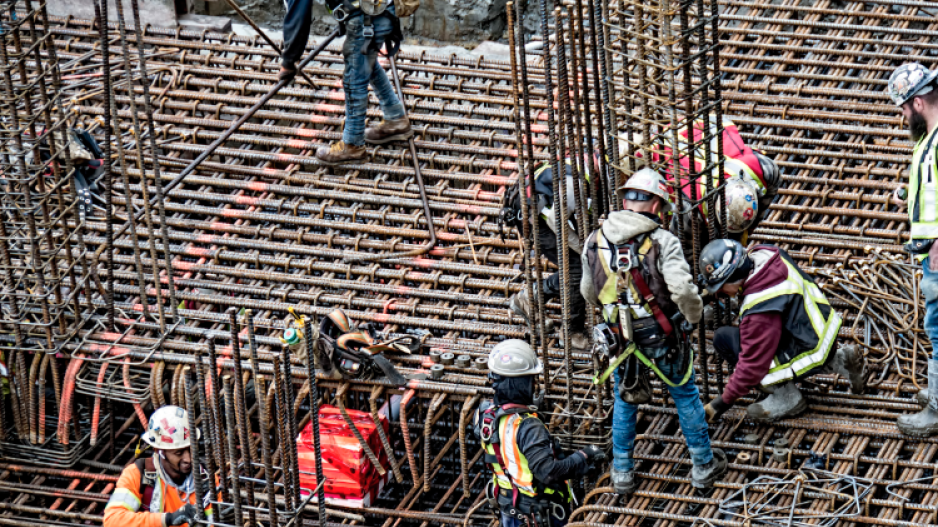Attitudes about the year ahead for B.C.’s construction industry are looking rosier than expected.
Despite economic uncertainties, 87 per cent of B.C. contractors expect 2024 to be as busy – or even busier – compared with last year, according to an annual survey from the Independent Contractors and Businesses Association (ICBA).
“This seems counterintuitive given that we have rolled from one crisis to another in recent years – from the COVID-19 pandemic, to supply chain disruptions, to inflation and then historic increases in interest rates,” said ICBA president Chris Gardner in a Jan. 8 survey report.
While forward-looking attitudes for construction are positive, two-thirds of B.C. contractors cite the shortage of people as the biggest challenge in 2024.
When survey respondents were asked if there are enough qualified workers in the trades they require, 79 per cent said no.
“Four in five contractors still can’t find enough of the people they need. This dynamic has not changed for years given Canada’s dismal record of identifying the skills gaps in our economy and attracting the new immigrants we need to fill them,” said Gardner.
“Last year, only two per cent of the approximately 460,000 new permanent immigrants to Canada ended up pursuing a career in the construction trades. We must do better.”
The industry dealt with headwinds such as inflation and higher interest rates in 2023, complicating the financial feasibility and delivery of projects. Survey respondents indicate that labour shortages, supply chain issues and government red tape will be among the biggest challenges they face in the year ahead.
Electricians currently have the largest shortage of positions, with carpenters in second and plumbers in third. Carpentry ranks first when it comes to the largest shortages coming from future retirements.
However, labour shortages can also result in increased career opportunities for those looking to get into the construction industry, said Gardner.
“Construction trades are in intense demand, and the earnings potential remains strong – meaning that real incomes are growing at a faster pace than in other sectors,” he said.
Survey respondents predict that the average construction hourly wage will increase by five per cent this year, with an additional six per cent increase in 2025.
Other challenges identified by survey respondents are supply chain issues, with 62 per cent of those surveyed saying that they are experiencing delays. This is in addition to challenges with government red tape, with 60 per cent saying that the government is on the wrong track, up from 55 per cent last year.
“We have not moved the needle on housing supply for the past 50 years – we are building fewer homes today than we did in 1972. Reams of new regulations and convoluted approval processes have choked the supply we need to keep home prices affordable for first-time homebuyers and young families,” said Gardner.
“All three levels of government need to stop the finger-pointing and working at cross-purposes, and collaborate meaningfully to fast track housing, cut red tape, and put in place practical policies that will make a real difference for home buyers.”



